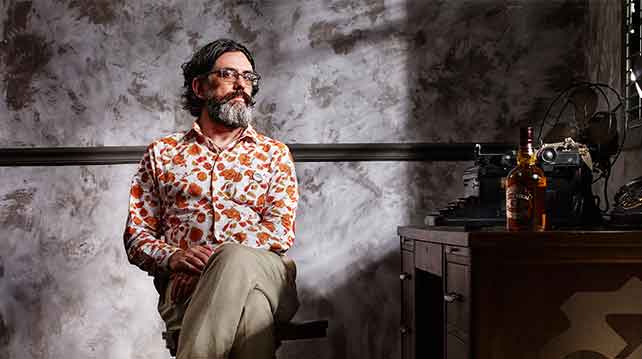Dave Broom is an experienced writer in the subject of whisky and other spirits. He has written numerous books and is a four-time winner of the Glenfiddich Drinks Book of The year. His latest book The World of Atlas Whisky explores whiskies by geography as well as by flavours.
Not only is Broom a member of the prestigious Malt Maniac, he is also the Chairman of the judges for World Whiskies Awards. With his vast knowledge in whiskies, he will be hosting a comparative tasting of the Karuizawa 1965 Bourbon Cask and Karuizawa 1965 Sherry Cask for the first time in Whisky Live 2016. In conjunction with their 10 year anniversary in Singapore, La Maison Du Whisky will be bottling the last barrel of these two whiskies.
1. Is history important to the quality of whisky? How is that affecting Scotch and Japanese whisky market, considering Japanese whisky production basically uses the same methods as Scotch?
Knowing where you have come from is vital to any aspect of life. Knowing the positives and the negatives helps you to improve quality. Whisky never stands still, it is constantly evolving as new understandings come to light.
The fact that Japan uses the same production techniques as Scotland isn’t what is important. The philosophy that sits behind the Japanese approach is what matters.
Scotland makes the best Scotch, Japan makes the best Japanese whisky, a style which has been created to suit Japanese conditions - it goes with the food, it can be diluted and retain character, it has lightness, but intensity. It is the product of a culture and is aligned closely with the Japanese approach to craft.
The equipment may look the same, but there are tweaks in how a Japanese distiller approaches whisky - different yeast, clear wort, different oak types, and the impact of the Japanese climate are just some of those.
Now take those principles and extend them to thinking distillers in all the whisky-making countries of the world and you can see why this is such a fascinatingly diverse category. Kavalan in Taiwan, or Amrut in India have ‘Scottish’ equipment but make hugely different whiskies to Scotch.
2. Would you recommend whisky drinkers to read reviews and tasting notes before purchase? Why?
By all means read reviews - I do 6 new whiskies every Friday on scotchwhisky.com (and it’s free!) - but the important thing is to trust your own palate. Find a style you like. You might not like all whiskies - maybe smoke isn’t your bag, or sherry casks are too strong, but that doesn’t mean you don’t like whisky! You just haven’t found the right one. In other words, use reviews as a guide, not a bible!
3. What else do you write about other than whisky and where can we find those articles?
I’ve just published a book on rum [Rum: The Manual] and write and talk regularly on that. There’s also a book in the Manual series on gin and I’m currently working on two projects - one on cachaça and one on agave spirits. The world of spirits is an endlessly fascinating one.
4. What’s your go-to drink when your dinner involves hot spicy food?
Gin work well I find. Beer as well, but I’m more than happy to take advice. When I travel I always try to eat local food and discover local drinking culture. After all, you know best!
